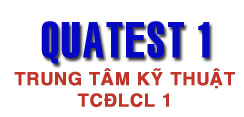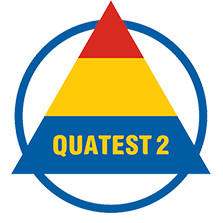Kickoff meeting The Climate change management — Carbon neutrality Project in accordance with the international standard ISO 14068-1:2023
Post date: Friday, Jun 14, 2024 | 10:40 - View count: 589
The ISO 14060 family of standards benefits organizations, GHG project proponents and stakeholders worldwide by providing clarity and consistency for quantifying, monitoring, reporting, validating and verifying GHG emissions and removals and carbon neutrality.
Climate change arising from anthropogenic activity has been identified as one of the greatest challenges facing the world and will continue to affect businesses and citizens over future decades. Climate change has implications for both human and natural systems and can lead to significant impacts on resource availability, economic activity, biodiversity and human well-being. In response, international, regional, national and local initiatives are being developed and implemented by public and private sectors to mitigate climate change by reducing greenhouse gases (GHGs) in the Earth’s atmosphere as well as to facilitate adaptation to climate change.
The ISO 14060 family of standards benefits organizations, GHG project proponents and stakeholders worldwide by providing clarity and consistency for quantifying, monitoring, reporting, validating and verifying GHG emissions and removals and carbon neutrality.
ISO 14068-1:2023 provides a standardized approach to achieving and demonstrating carbon neutrality. It is applicable to subjects, i.e. organizations and products (e.g. goods and services, including events and buildings). The hierarchy approach presented in this document prioritizes actions to reduce the direct and indirect GHG emissions and enhance GHG removals of the subject, with offsetting used only for the carbon footprint remaining after these actions. Achievement of carbon neutrality by organizations and products entails actions that reduce GHG emissions and enhance GHG removals, and thus can help support countries to fulfil their nationally determined contributions (NDCs) and to meet the goals of the Paris Agreement.
Carbon neutrality is defined as “condition in which, during a specified period of time, the carbon footprint has been reduced as a result of greenhouse gas (GHG) emission reductions or GHG removal enhancements and, if greater than zero, is then counterbalanced by offsetting”.

In line with the STAMEQ Vision, on June 12, 2024, the Commission for Standards, Metrology and Quality (STAMEQ) and BSI Vietnam jointly organized a meeting to kick off the Climate Change Management – Carbon Neutrality Project in accordance with the international standard ISO 14068-1:2023 for STAMEQ departments. The meeting was attended by Dr. Ha Minh Hiep – Acting Director General of STAMEQ, leaders of STAMEQ’s departments, Dr. Le Duyên Anh – General Director of BSI Vietnam, and representatives of BSI Vietnam in Hanoi.

During the meeting, both parties discussed the objectives and contents of the project implementation plan. Accordingly, BSI Vietnam will provide training on ISO 14068-1:2023 for STAMEQ departments and guide STAMEQ’s functional departments in GHG quantification, implementing necessary measures such as emission reduction, removal enhancement, and offsetting, thereby demonstrating STAMEQ’s carbon neutrality.





















